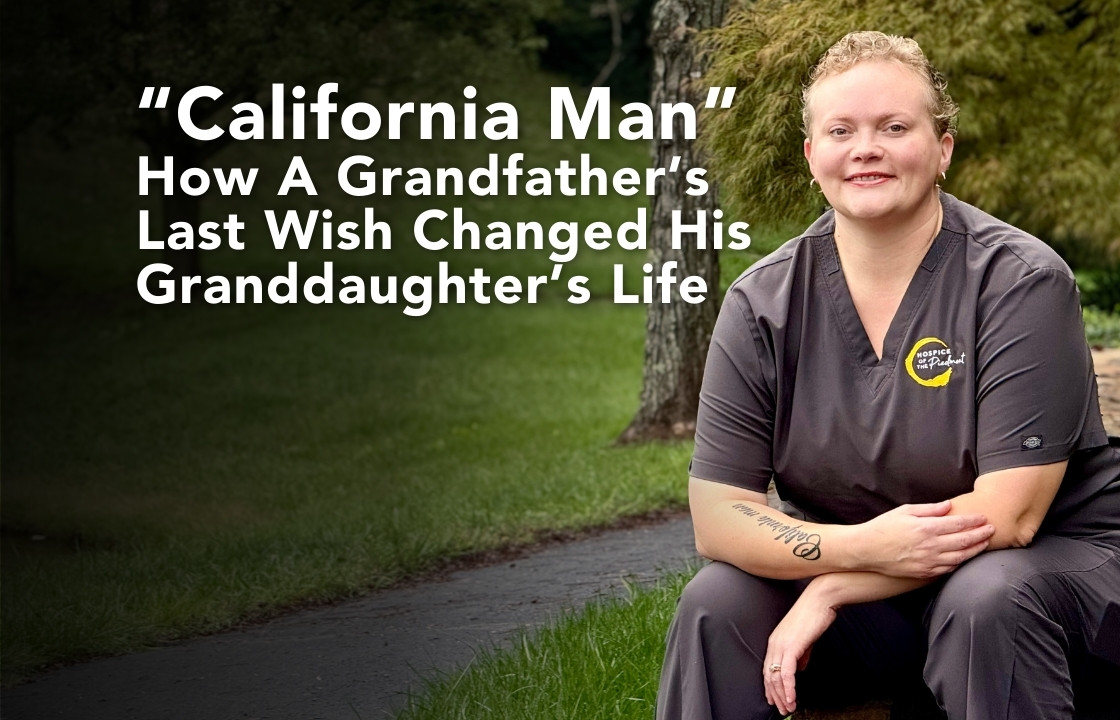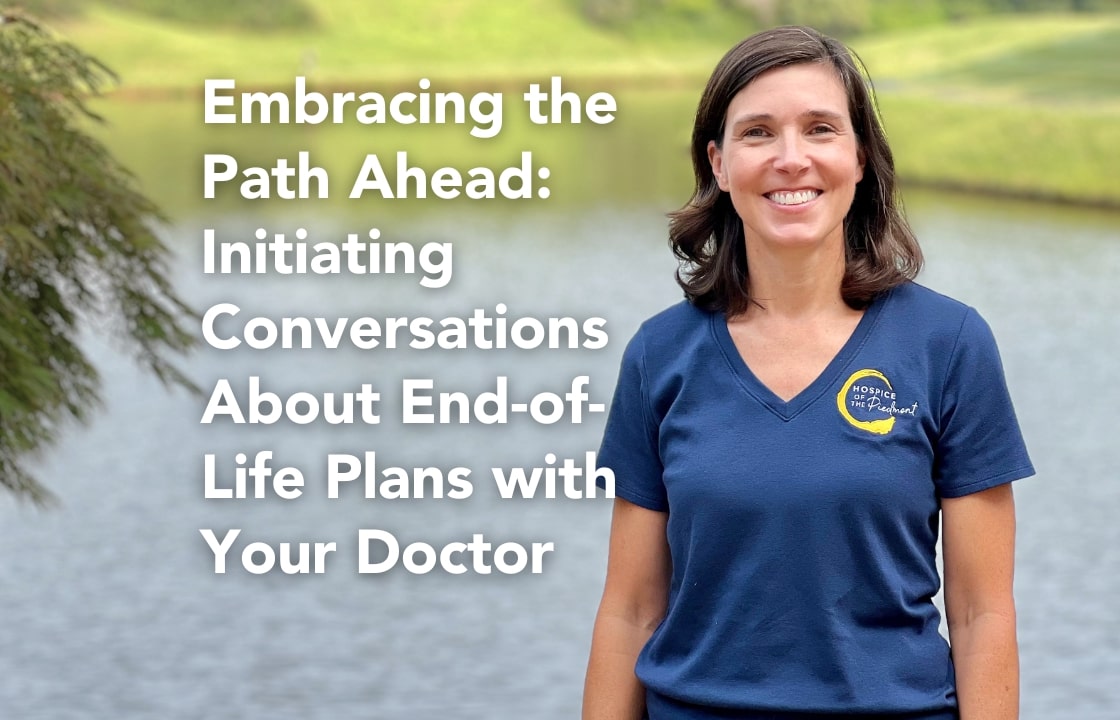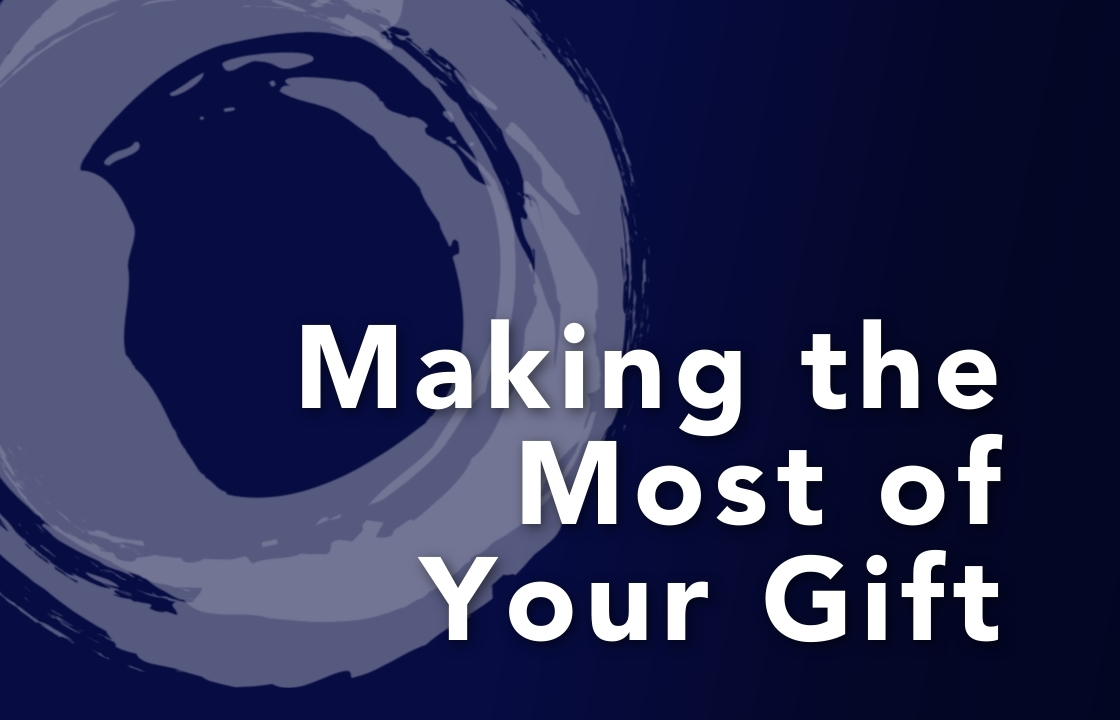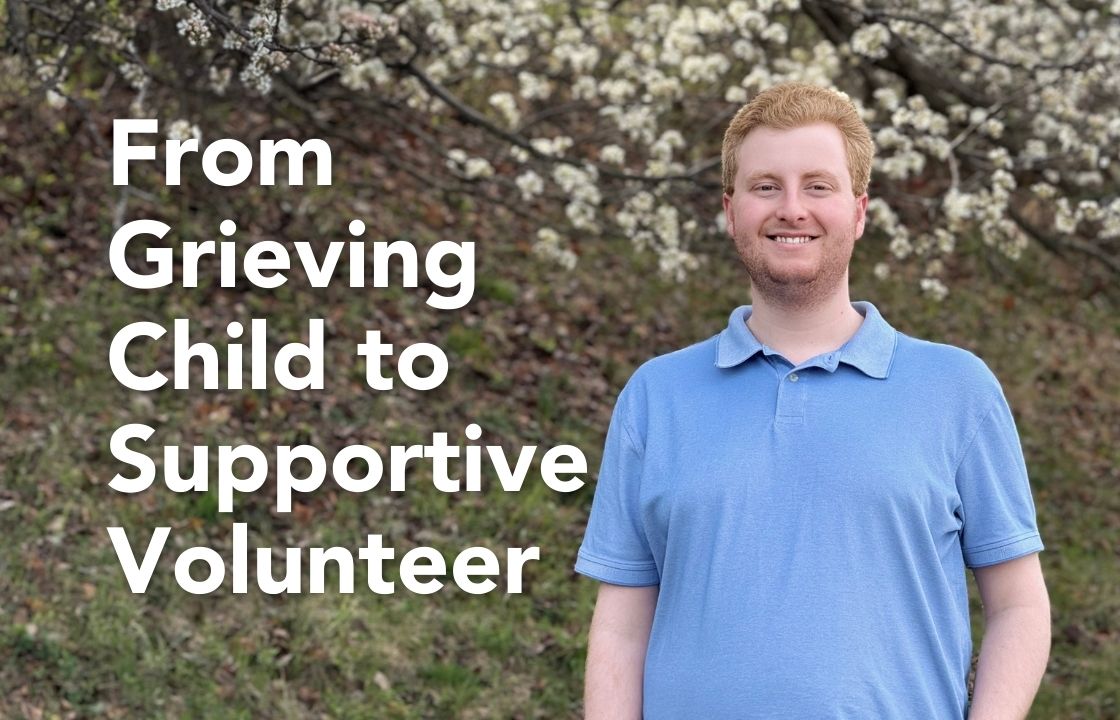The Beginning
“He only weighed 3 1/2 lbs when he was born, and he wasn’t expected to survive. They put him in a box by the fire, just in case. The next morning, he woke up. And the family said, ‘I guess we got another one.’”
Mandi, a Hospice of the Piedmont Certified Nursing Assistant (CNA), is recounting her grandfather’s origin story.
It was 1933. Cecil Higgins was an unexpected twin. The 19-year-old parents-to-be anticipated only one baby and planned to name him “Winston Cecil Higgins.” When the second boy arrived, they split the name in half. The firstborn was christened “Winston,” and the second, “Cecil.”
“My grandfather always joked that his family was so poor he couldn’t afford a middle name,” laughs Mandi.
Hospice is About Life
There are many myths about hospice. Perhaps the greatest of these is that “hospice is about death.” If anything, hospice is about life.
After all, every life is a story. And every story needs a beginning and an end.
This is the story of Cecil Higgins. From his beginning in Tennessee (“born in a shanty near the creek, according to his birth certificate”) to his end in a farmhouse on the James River, cared for by his granddaughter Mandi.
From Tennessee to Virginia
Cecil Higgins grew up in Tennessee before his family moved to Buckingham County, Virginia, in his teens. At 18, he joined the Navy, learning engineering during his four-year service. After moving around for a bit, Cecil settled in Central Virginia, working as an engineer at Blue Ridge Hospital. The hospital merged with the University of Virginia in the late 1970s, and Cecil stayed on until retirement. Not one to idle, he then moved to Scottsville, where he lived and worked on a 65-acre cattle ranch.
Cecil thrived in retirement and spent time with his granddaughter, who lived nearby.
The Stroke
In early 2020, Mandi had no intention of becoming a caregiver, much less a Certified Nursing Assistant. She was a manager at Walmart, having spent over a decade working her way up the ranks. Her life, like many others, took an unexpected turn when the pandemic hit.
Cecil suffered a stroke in January 2020, which left him unable to care for himself. “He went from independently running his 65-acre cattle farm to, suddenly, not being able to do anything by himself,” Mandi explains. “I had just gotten a promotion at Walmart, but none of that mattered. My PaPaw needed me. So, I quit without notice and became his full-time caregiver.”
The learning curve was steep. “I didn’t know anything,” she explains. With training programs shut down due to the pandemic, Mandi had no formal guidance. “I went on YouTube and taught myself how to do everything.”
Caring for PaPaw
Despite the immense challenges, Mandi was determined to provide the best possible care for her grandfather.
Cecil eventually moved in with Mandi and her husband. They built an addition to their home to accommodate his needs, complete with wheelchair sinks and a custom bathroom. “Everything in the house was made for him. I even had the contractor go to the hospital to take measurements so that it would be just right for PaPaw,” she says.
As the months went by, Cecil’s condition worsened. In addition to recovering from the stroke, he was also diagnosed with Alzheimer’s and vascular dementia. His health declined rapidly, and by July 2022, his neurologist suggested hospice care.
At first, Mandi resisted. “I had it in my head that putting him on hospice was giving up,” she says. But by August, she was at a breaking point. She was exhausted. She needed help.
Enter Hospice
Mandi reached out to Hospice of the Piedmont (HOP), and within a day, Brittany Davis, one of HOP’s nurses, was at her door. Brittany assessed Cecil’s condition and worked with Mandi to gather the supplies they needed to make him comfortable.
Brittany was impressed by everything Mandi had done to care for her grandfather over the previous two years. Mandi looks back on that moment with pride, “I had found a fully assembled ICU bed on Amazon. You’d be amazed at what you can find on the internet!”
Cecil was only on hospice care for three weeks, but in that short time, he and Mandi were both deeply impacted. Hospice provided much-needed support, and Brittany’s frequent visits helped Mandi feel less alone in the caregiving process.
Thinking Ahead
It was during one of those visits that Brittany posed a life-changing question: “She asked me, ‘Have you ever thought about what you’re going to do after this? You’re still pretty young.’”
At the time, Mandi hadn’t considered her future beyond caregiving. “I was just trying to get through each day,” she says. “But Brittany encouraged me to think about becoming a CNA.”
Brittany pointed out that many people in Mandi’s position were frightened about what was happening with their loved one, but Mandi seemed calm and curious. She was always asking questions.
“California Man”
It was in these final few days when PaPaw began exhibiting some puzzling and memorable behavior.
Cecil, who had not spoken for days, suddenly sat up in bed and started shouting “California Man,” laughing to himself as if it was the funniest thing in the world.
“We have no idea where it came from,” Mandi laughs. “He only went to California once, and he hated it. He complained the whole time about the little Yuppies everywhere. But for some reason, he wouldn’t let anyone in the room unless they said ‘California Man.’
“It became like a mantra. Even when we were cleaning, we’d shout, ‘California Man, Woo!’ and laugh along with him.”
A Good Death
After Cecil passed peacefully in September of 2022, Mandi took time to grieve. “He had what they call a good death,” she says softly. “It was very peaceful. I camped out on the floor next to him with our dogs because I didn’t want him to feel like he was alone.”
After her grandfather’s death, Mandi kept the promise she made to him during his final days. “Before he died, he made me promise that I would go back to school and at least get my CNA license. He squeezed my hand so tight, my engagement ring cut into my finger.”
That promise became the catalyst for her next chapter.
A Legacy
Mandi enrolled in the “Earn While You Learn” program at UVA and earned her CNA certification. She now works at Hospice of the Piedmont, caring for patients and families in the same way the hospice team cared for her and her grandfather. She’s currently working toward becoming an LPN, taking classes at Piedmont Virginia Community College.
Cecil’s legacy continues through Mandi’s work. Every time she comforts a patient or answers a family’s question, she feels the impact of her grandfather’s life on her own. “He was such a phenomenal man,” Mandi says. “I just didn’t want him to be another guy who died from Alzheimer’s. It has to mean something. That’s why I’m here, and that’s why I’ll keep going back to school.”
California Man Lives
For Mandi, “California Man” is more than just a funny memory. It symbolizes the unpredictability and uniqueness of the end-of-life process, and it’s why she carries the words with her—literally.
On her right arm, Mandi has a tattoo of her grandfather’s final words.
“It’s a permanent piece of art therapy,” she says. “Anytime I meet a patient or their family, and they’re upset, I tell them the story of California Man. If I can get through this, I know they can, too.”
The End, but Not Really
At the beginning of this story, we told you a lie.
We said that life is a story that has a beginning and an end. Although Cecil Higgins’ life has finished, his story has not ended. Through her work, Mandi honors the promise she made to her grandfather. His story doesn’t end with his death—it lives on through the hard-earned expertise and deeply personal care she provides to patients and families to this day.
—-
This story is part of our “What brings you here?” series where we share the stories of our team members and how they were called to work in hospice.



